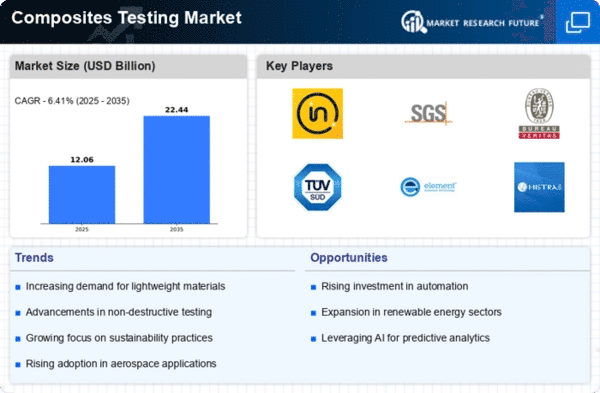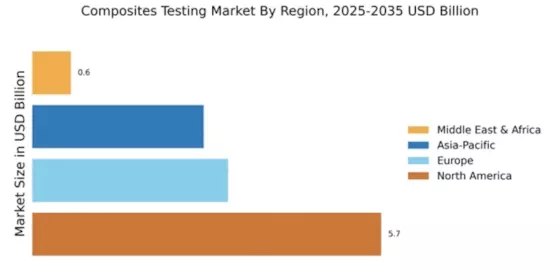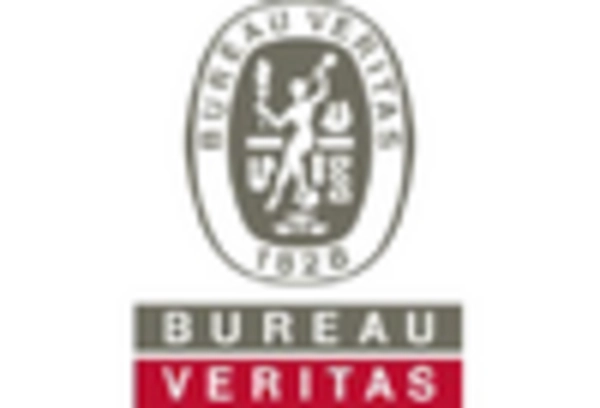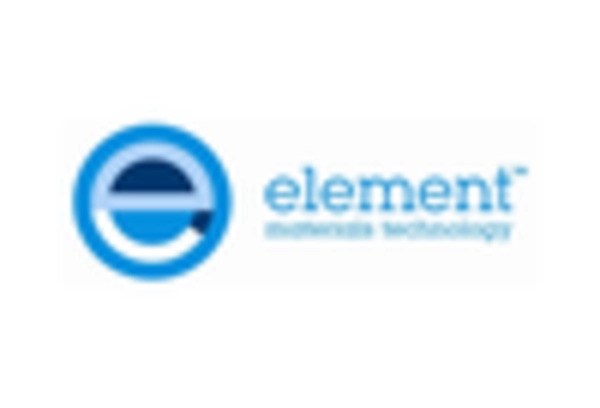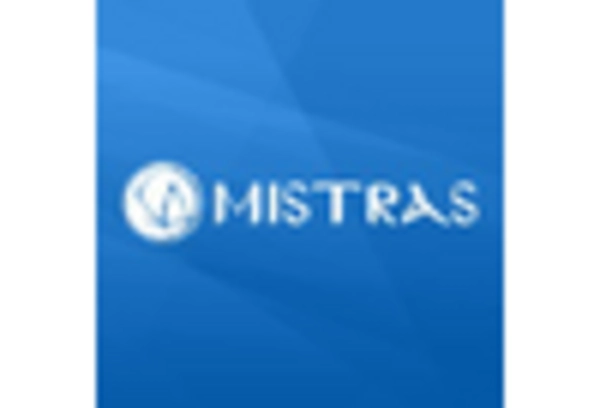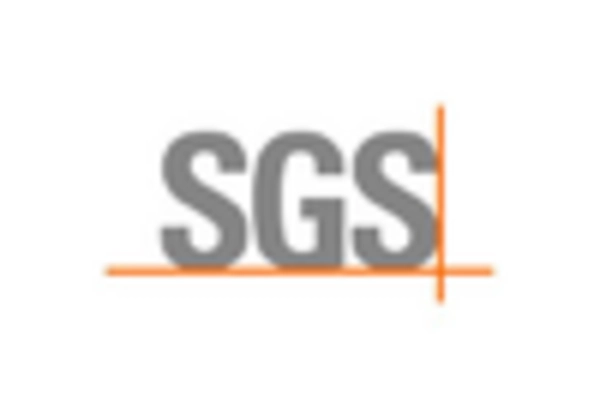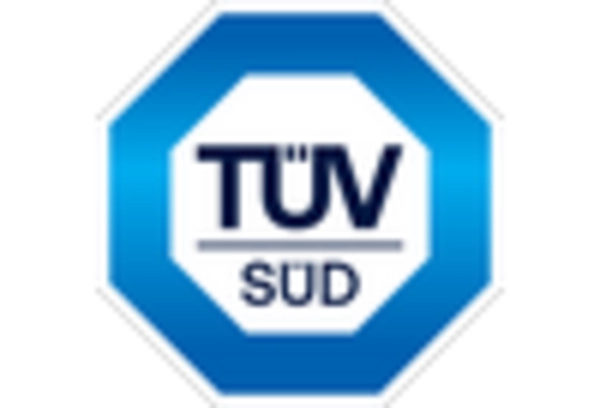Market Growth Projections
The Global Composites Testing Market Industry is poised for substantial growth, with projections indicating a market value of 11.3 USD Billion in 2024, expected to reach 22.4 USD Billion by 2035. This growth trajectory suggests a compound annual growth rate (CAGR) of 6.41% from 2025 to 2035. Such figures reflect the increasing adoption of composite materials across various sectors, driven by their advantageous properties such as strength, lightweight, and corrosion resistance. The anticipated growth underscores the importance of robust testing methodologies to ensure the performance and safety of these materials in diverse applications.
Expansion of End-User Industries
The expansion of end-user industries such as automotive, aerospace, and construction significantly impacts the Global Composites Testing Market Industry. As these sectors grow, the demand for composite materials and their testing increases correspondingly. The automotive industry, for instance, is increasingly adopting composites to enhance vehicle performance and reduce weight. This trend is expected to drive the market, with projections indicating a growth from 11.3 USD Billion in 2024 to 22.4 USD Billion by 2035. The anticipated compound annual growth rate (CAGR) of 6.41% from 2025 to 2035 underscores the potential for sustained expansion in the composites testing domain.
Increasing Regulations and Standards
The Global Composites Testing Market Industry is shaped by the growing emphasis on compliance with stringent regulations and standards. Various sectors, including aerospace, automotive, and construction, are subject to rigorous testing protocols to ensure safety and performance. Regulatory bodies are continuously updating standards to address emerging technologies and materials. For example, the Federal Aviation Administration (FAA) and the European Union Aviation Safety Agency (EASA) impose specific testing requirements for composite materials used in aircraft. This regulatory landscape compels manufacturers to invest in comprehensive testing solutions, thereby propelling market growth as they seek to adhere to these evolving standards.
Rising Demand for Lightweight Materials
The Global Composites Testing Market Industry experiences a surge in demand for lightweight materials across various sectors, particularly in aerospace and automotive. As manufacturers strive to enhance fuel efficiency and reduce emissions, composites such as carbon fiber and glass fiber are increasingly favored. For instance, the aerospace sector is projected to utilize composites extensively, contributing to the market's growth. In 2024, the market is valued at 11.3 USD Billion, reflecting the industry's shift towards sustainable practices. This trend is expected to continue, as lightweight materials are anticipated to play a pivotal role in achieving regulatory compliance and meeting consumer expectations.
Emerging Applications in Renewable Energy
The Global Composites Testing Market Industry is witnessing a notable shift towards emerging applications in renewable energy, particularly in wind energy and solar power. Composites are increasingly utilized in the manufacturing of wind turbine blades and solar panels due to their lightweight and durable properties. As the global focus on sustainable energy solutions intensifies, the demand for reliable testing of these composite materials becomes paramount. This trend not only supports the growth of the composites testing market but also aligns with global efforts to transition towards greener energy sources. The integration of composites in renewable energy applications is likely to drive innovation and investment in testing technologies.
Technological Advancements in Testing Methods
Innovations in testing methodologies significantly influence the Global Composites Testing Market Industry. Advanced techniques such as non-destructive testing (NDT) and digital twin technology enhance the accuracy and efficiency of composite material assessments. These advancements allow for real-time monitoring and predictive maintenance, which are crucial for industries like aerospace and automotive. The integration of artificial intelligence and machine learning into testing processes further streamlines operations, reducing costs and improving safety. As these technologies evolve, they are likely to drive market growth, ensuring that manufacturers can meet stringent quality standards and regulatory requirements.


